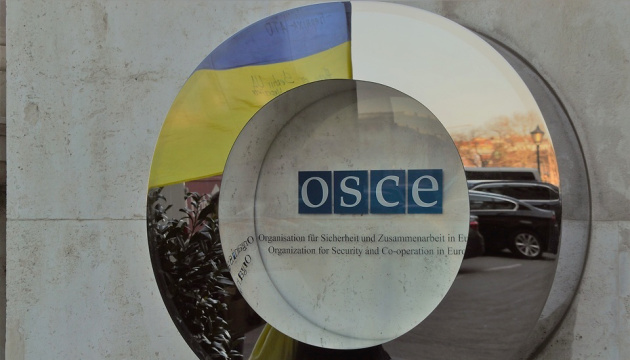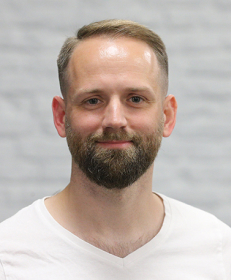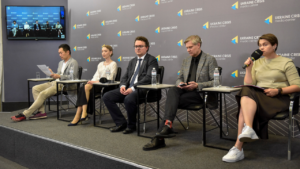OSCE supports MIHR’s call to launch the Moscow Mechanism on Ukrainian civilian hostages

Today, the OSCE launched the Moscow Mechanism on the arbitrary detention of Ukrainian civilians by the Russian Federation. This launch means that shortly, a group of independent international experts will begin investigating the crimes committed by Russia against Ukrainian civilians. The broad mandate of the mission is to establish the facts of deprivation of liberty in the occupied territories and to investigate related crimes, such as torture or inhuman treatment. The report prepared as a result of the investigation will be an essential tool for documenting and proving Russia’s crimes at the international level.
The launch of the Moscow Mechanism for civilian Ukrainians persecuted by Russia is, among other things, the result of a year and a half of advocacy work by the Media Initiative for Human Rights and Ukrainian diplomats in the OSCE. We held the first event on this occasion on June 27, 2022. Even then, the MIHR, together with partners from the Ukraine 5AM Coalition, drew the OSCE’s attention to the systematic criminal practices that Russia applies to civilian Ukrainians in the occupied territories, which, in combination, may indicate a crime against humanity.

Tweets from international partners and MIHR after our events at the OSCE
Since then, we have held about ten special events at the OSCE, including events on mass filtration, captured women, arbitrary detention, and torture of civilians. During meetings with OSCE delegations, we spoke together with victims about the international crimes committed by Russia and shared documented testimonies with them.
The MIHR prepared an analysis and update of the documented data for each event. One of the landmarks was the presentation in May 2023 of the report on places where Russia detains civilian Ukrainians. It systematized data on more than 100 places of illegal detention of Ukrainians in Russia, Belarus, and the temporarily occupied territories of Ukraine. The MIHR also created an interactive online map of these places.
A year ago, together with the organizations of the Ukraine 5AM Coalition, we developed potential mechanisms for the release of civilian hostages held by the Russian Federation. One of them is the launch of the OSCE Moscow Mechanism. Since then, the MIHR team has held dozens of public and non-public meetings at the national and international levels, where we emphasized the importance of the Moscow Mechanism as a tool for independent documentation of Russia’s crimes against Ukrainian civilians. At the same time, we launched the Release Hostages: A Demand for Freedom Campaign to draw the world’s attention to the problem of the Russian Federation’s detention of Ukrainian civilians.

Portraits of civilian hostages published as part of Release Hostages campaign: A Demand for Freedom Campaign
An essential stage in the advocacy work of the MIHR was the side event during the 30th Annual Meeting of the OSCE Ministerial Council in Skopje. Thus, on December 1, 2023, together with 41 OSCE member states, the MIHR organized an event entitled “In the Shadow of the Russian Occupation: How to Ensure Accountability and Return of Civilian Hostages.” At this meeting, Olha Reshetylova, Head of the MIHR, said:
“There is no mechanism to gain access to places where Russia holds civilian hostages. We call on the international community to find a tool to release these people or at least ensure monitoring of the places of detention. We also call on the OSCE to launch the Moscow Mechanism on the persecution and capture of civilians by Russia in the occupied territories of Ukraine.”
It was then, in Skopje, that not only the MIHR but also representatives of dozens of OSCE participating states, including Buyar Osmani, the Minister of Foreign Affairs of North Macedonia, who held the OSCE chairmanship at the time, spoke out loud about the possible launch of the Moscow Mechanism for the persecution of civilian Ukrainians by Russia. He stated:
“The case of abducted civilians remains a priority for the North Macedonian OSCE Chairmanship. And we fully support the development of new international instruments to ensure the safe return of civilians and bring perpetrators to justice in case of violations of international law.”
A few weeks later, the UN General Assembly adopted a resolution on the human rights situation in the temporarily occupied territories of Ukraine. For the first time, it stated that Russia was arbitrarily detaining and holding civilian hostages, a problem that the MIHR had been raising at both the UN and the OSCE. It is noteworthy that the UN had not previously mentioned civilian hostages in the context of Russia’s armed aggression against Ukraine.

MIHR side event during the 30th Annual Meeting of the OSCE Ministerial Council, Skopje
Every event of the MIHR at the OSCE was accompanied by strong support from the Permanent Mission of Ukraine in Vienna and the US, EU, and UK missions to the OSCE. We are incredibly grateful to the Missions of Ireland, Canada, France, Malta, Sweden, Norway, Poland, and all 45 countries that supported us all this time, made efforts, and cast their votes for the initiation of the Moscow Mechanism on the persecution of civilian Ukrainians by Russia.
However, a robust advocacy campaign would never have succeeded without the courage of victims and witnesses who found the strength to participate in events organized by the MIHR. As a team, we thank you for your cooperation!
Since the beginning of Russia’s full-scale invasion of Ukraine, this is the fourth activation of this mechanism in the context of Russia’s human rights violations in the occupied territories of Ukraine — the first two concerned general issues of violations of international humanitarian and human rights law. The third was about the forced transfer and deportation of Ukrainian children to the Russian Federation. Now, international experts will come to Ukraine to begin documenting Russia’s war crimes against Ukrainian civilians.
For reference: The Moscow Mechanism is an OSCE tool that allows OSCE participating States to request the establishment of a special mission of independent experts to investigate a specific human rights issue or problem on their territory or the territory of another OSCE participating State. Over the years, the Moscow Mechanism has been activated 13 times, most recently on February 29, 2024, to investigate the arbitrary deprivation of liberty of Ukrainian civilians by the Russian Federation. The Moscow Mechanism is called the Moscow Mechanism because it was approved in 1991 at the OSCE Human Dimension Conference held in Moscow.







